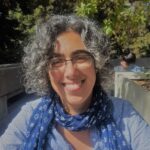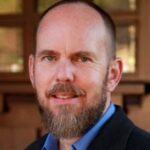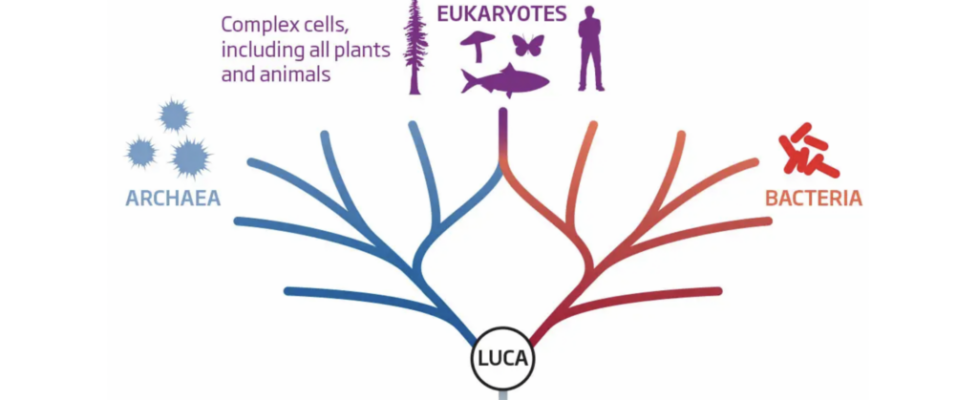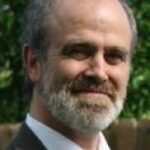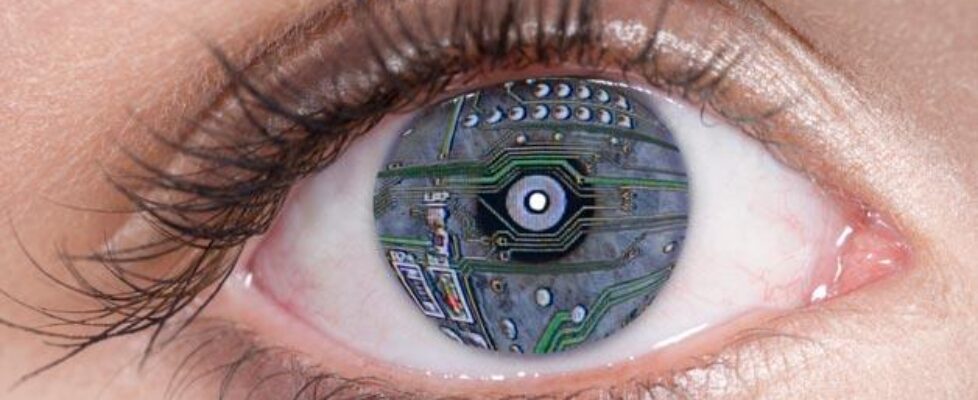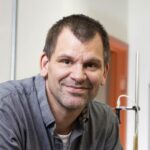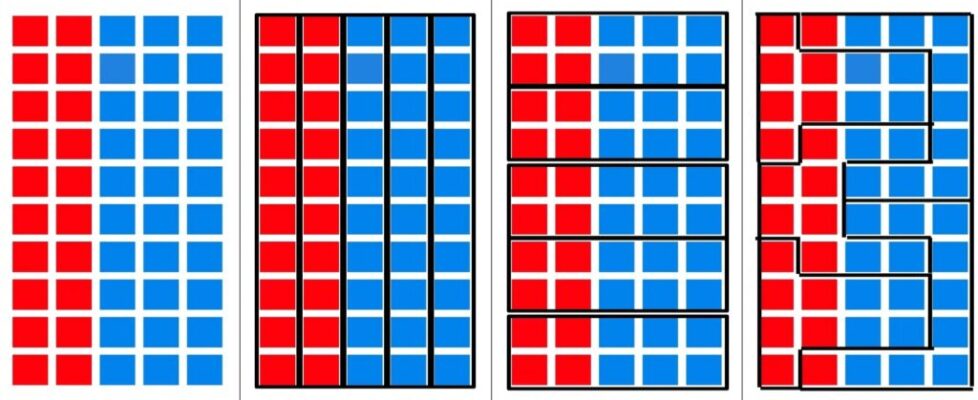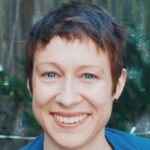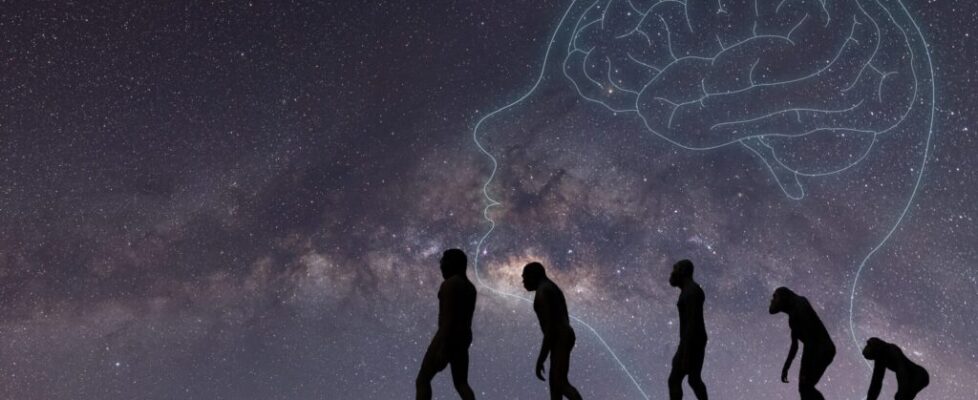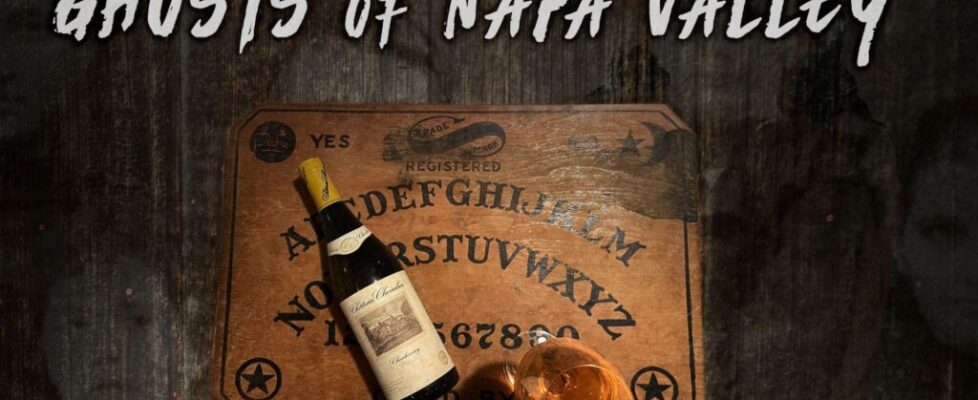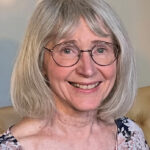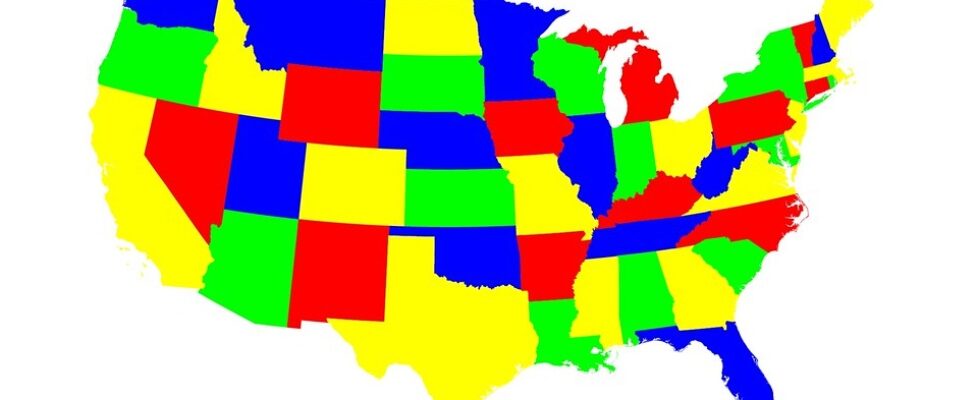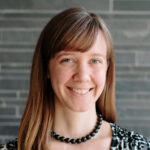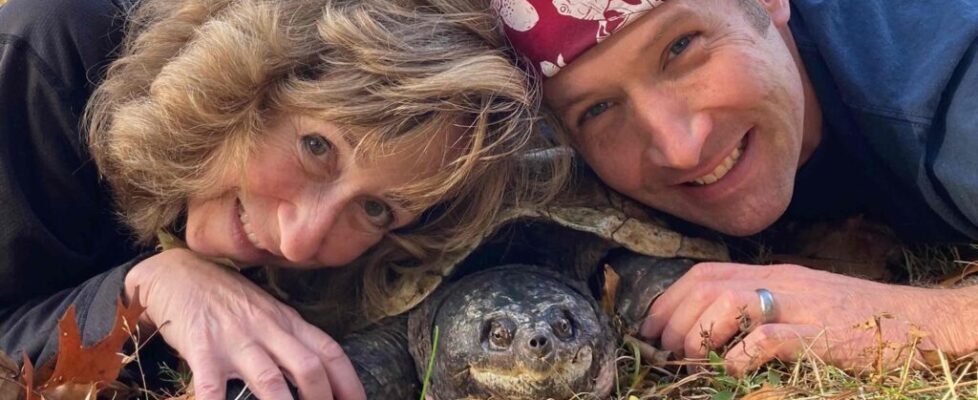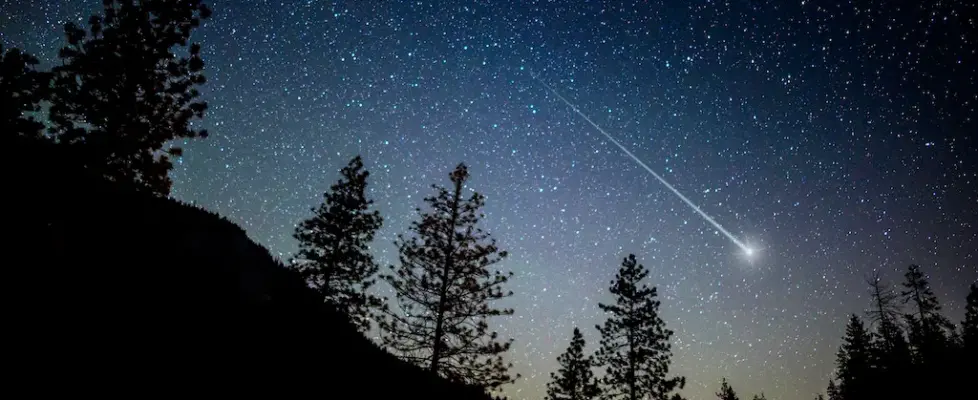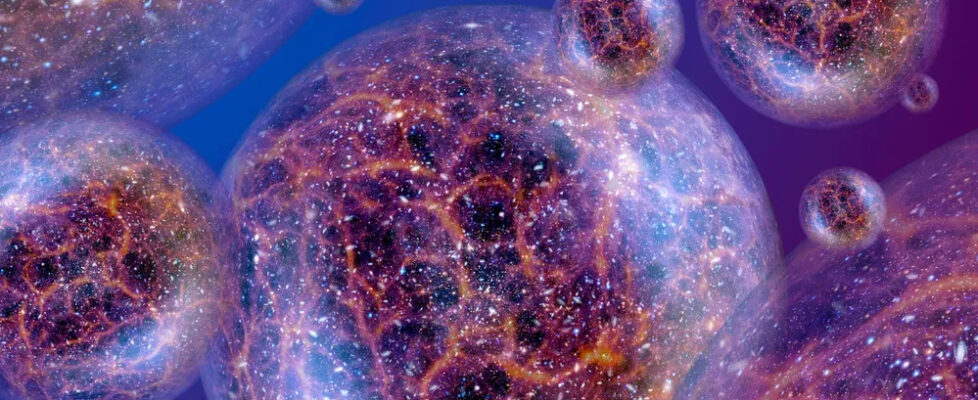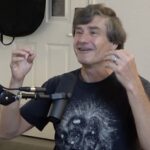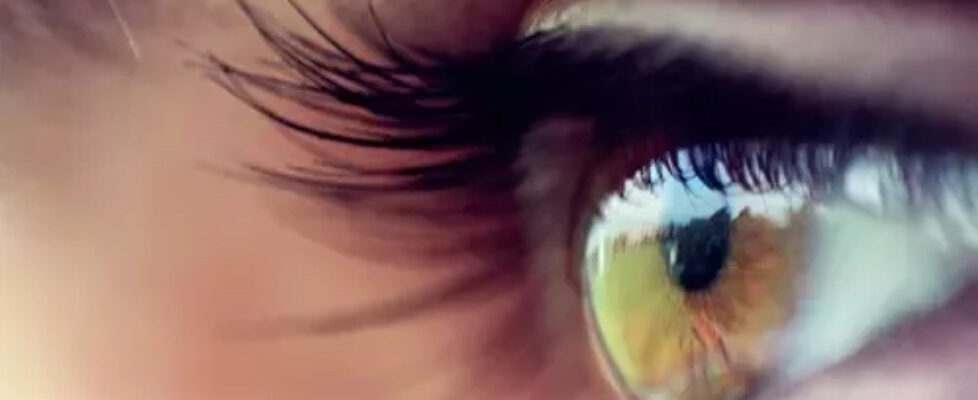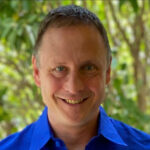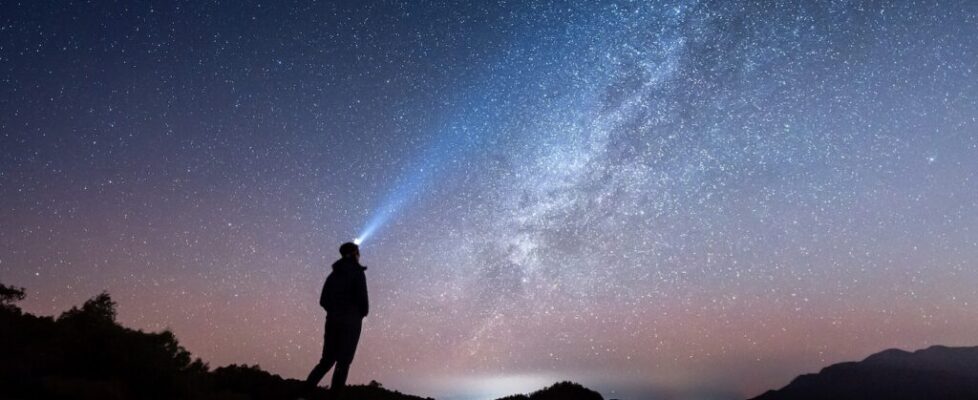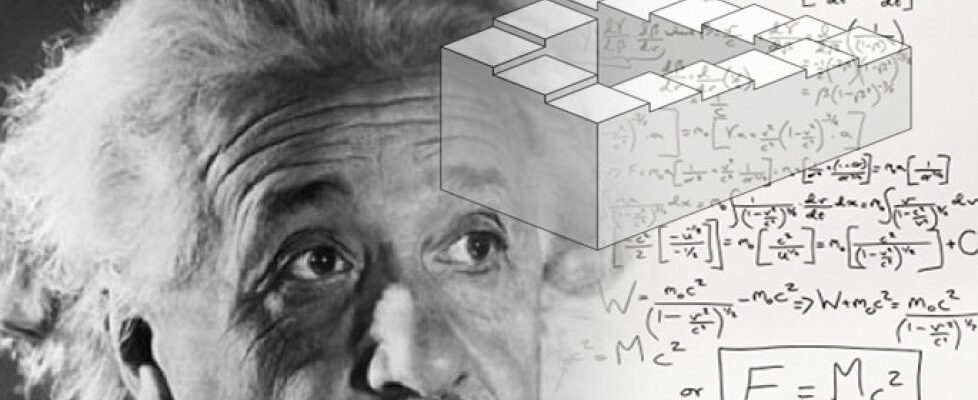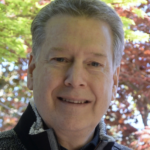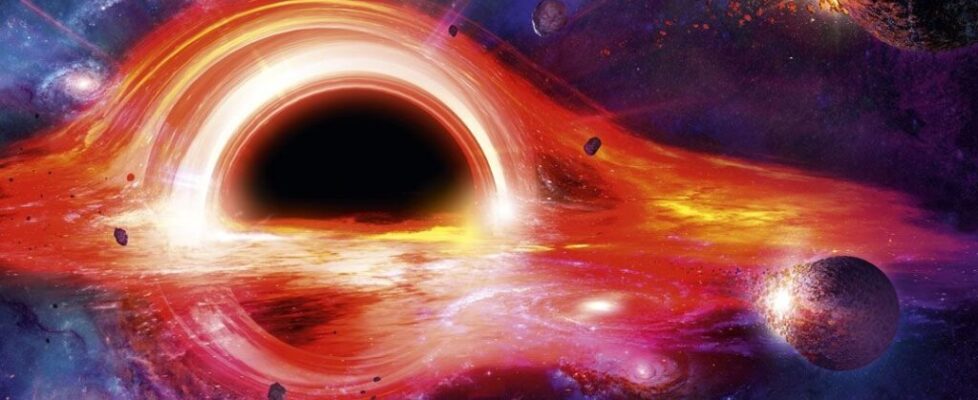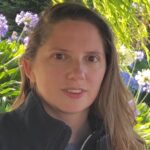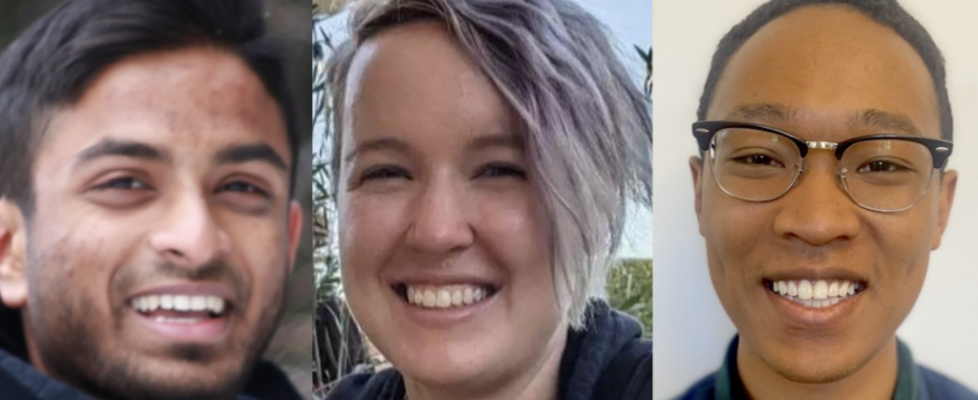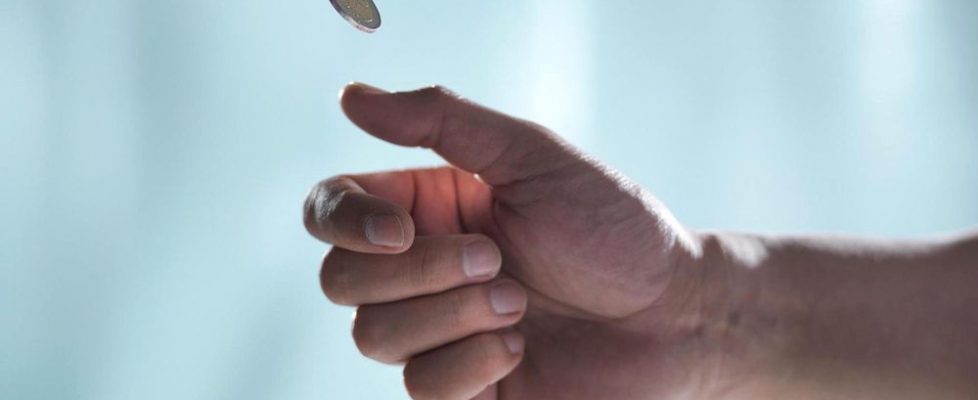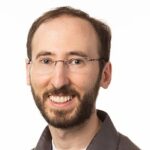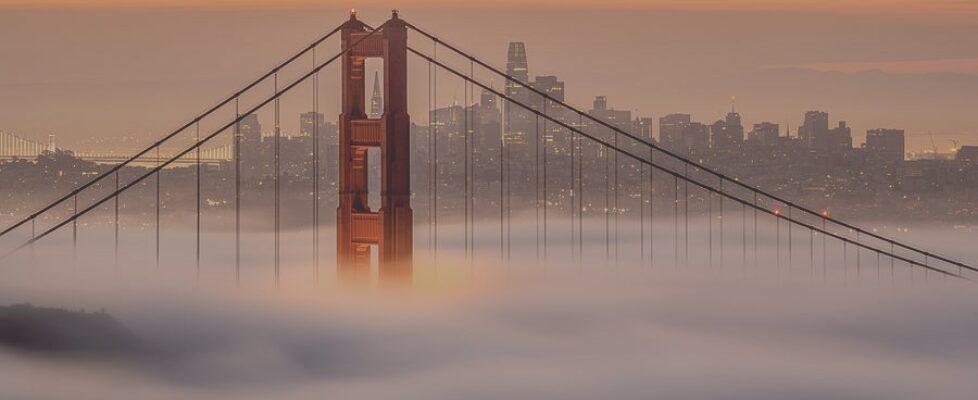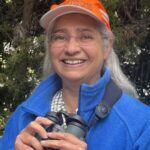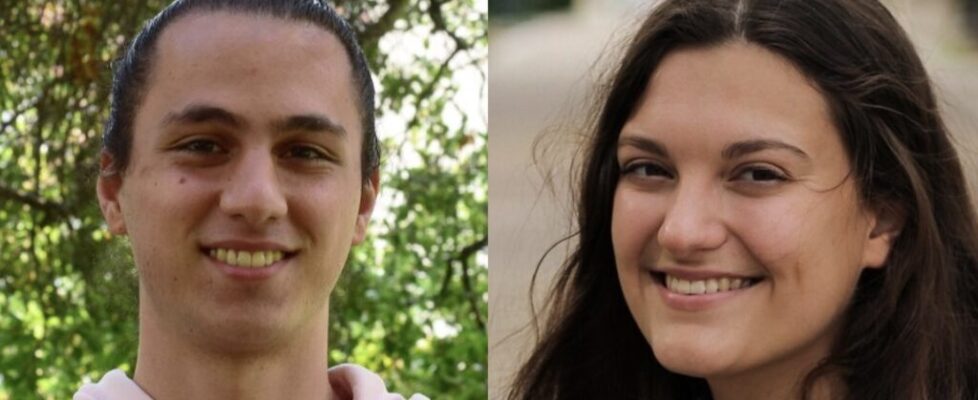The annual Perseid meteor shower (arguably the best meteor shower of the year) will peak on the night of August 11/12, but the nights of August 9/10, 10/11, 12/13, and 13/14 should reveal some Perseids as well. The first-quarter Moon will set around midnight, so skies will be dark (if you’re away from city lights).
In general, view Perseids after 11 pm local time — or better, after 12 am (indeed, the pre-dawn hours should actually yield the largest hourly rate). Before about 11 pm, few Perseids are visible — though they should be longer streaks than average, skimming through Earth’s atmosphere because the “radiant” Perseus from which they appear to come will be closer to the horizon. Also, you don’t have to account for your specific *time zone* — the times I list above are fine *regardless* of where you are (though the northern hemisphere is more favorable than the southern hemisphere, for this particular shower).
The meteor shower occurs because Earth flies through debris from Comet Swift-Tuttle (whose orbital period in a long ellipse is about 130 years), and the little bits of ice and mostly rock (typically the size of a grain of sand or a small pebble) will burn up as they zip through Earth’s upper atmosphere (altitude about 60 miles) at roughly 133,000 miles/hour (37 miles per second). (“Shooting stars” or “falling stars” are not stars at all!) Only very rarely do fragments reach the ground.
If you wish to view the meteor shower, it’s best to do so for at least half an hour (but an hour or longer is better). Try to get as far away from city lights as possible. The Perseids are known for having many bright and fast meteors that should be visible even in a somewhat light-polluted sky, though you’ll see many more from a darker location. *NO* binoculars or telescopes are needed; just look at the sky with your unaided eyes after getting dark-adapted (this can take up to 15 minutes). Choose a wide-open sky, without buildings or trees in the way. Dress warmly, and pack a hot beverage if you want to. Bug spray might be useful, too, depending on where
you are. You should lie down on a mattress, sleeping bag, or reclining lawn/deck chair for greater comfort, if you wish.
Looking anywhere in the sky is fine, but straight up often has the darkest sky. Views to the northeast should provide the most meteors, though their streaks will be shorter than if you look elsewhere. If you have clear and dark skies, you might see 20-40 meteors per hour. (The media often report 100 per hour, but that’s from the darkest locations, with a completely clear and unobstructed sky, at the shower’s peak intensity.)
There are many useful references with additional information and viewing tips, etc.; type “Perseid meteor shower 2024” in your favorite search engine. See, for example,
https://www.space.com/32868-perseid-meteor-shower-guide.html .
—-
If you live in the SF Bay Area, this addendum might be useful.
A few years ago, some students emailed me, asking for advice regarding good locations from which to view the Perseid meteor shower and other celestial events in the San Francisco Bay Area. You want to be in as dark a location as possible, far from city lights, with no fog — but this obviously depends on how far you’re willing to drive. Here are some suggestions.
Above Berkeley, Grizzly Peak Blvd. could be reasonably good, though you’re not far from the city and also might not be above the fog. Ditto for Inspiration Point along Wildcat Canyon Road, on the border of Berkeley and Orinda. Other locations in Tilden Park could also be good, except for the darn marine layer (fog). You could just see how things go and have a backup plan, if you’ve got transportation.
To get away from the fog, I suggest driving inland as far as necessary. Mt. Diablo State Park near Walnut Creek should be clear and reasonably dark. If you’re willing to go farther, then Altamont Pass off of highway 580 (east of Livermore) will almost certainly be clear. For darker skies, head to the central valley, but not near big cities like Tracy or Manteca. If you really don’t mind driving far, then go to the Sierra foothills — the Auburn area along Highway 80 (but not in Auburn itself), or the Pollack Pines area along highway 50, or even farther into the mountains than these two locations (Lake Tahoe should be great!).
Roughly 1.5 hours from Berkeley, Pt. Reyes National Seashore is a really dark location, but I worry about the fog hugging the coastline and blocking your view of the sky. You might do better stopping somewhere along the way, such as near Olema or other locations along Lucas Valley Road. Or, you could consider going south instead of north — say, to the San Juan Bautista area (e.g., Fremont Peak, if it’s open). Another possibility is Mt. Hamilton Road (highway 130) toward Lick Observatory east of San Jose — but if the parking lot at the summit itself is closed, you’ll need to stop elsewhere along the way (and be really careful: the road is narrow, the drops
off the sides are steep, and there’s mostly no guard rail).
Some years ago, my kids and I were camping at the China Camp State Park campsite (San Rafael, CA). From the parking lot I got a great view of Comet NEOWISE, but this site would be pretty good for the Perseid meteor shower, too — it’s reasonably dark, and the hills to the west tend to keep the coastal fog away. You could instead be on the road next to the campsite parking lot, if they don’t let you in (the gate gets locked).
But even if you can’t travel to a really dark location, I encourage you to look for Perseid meteors — you should be able to see the occasional really bright ones even from a relatively urban location. Just find as dark a region as you can, such as a big park, and don’t position yourself near street lamps, etc.
Good luck!
Alex Filippenko
